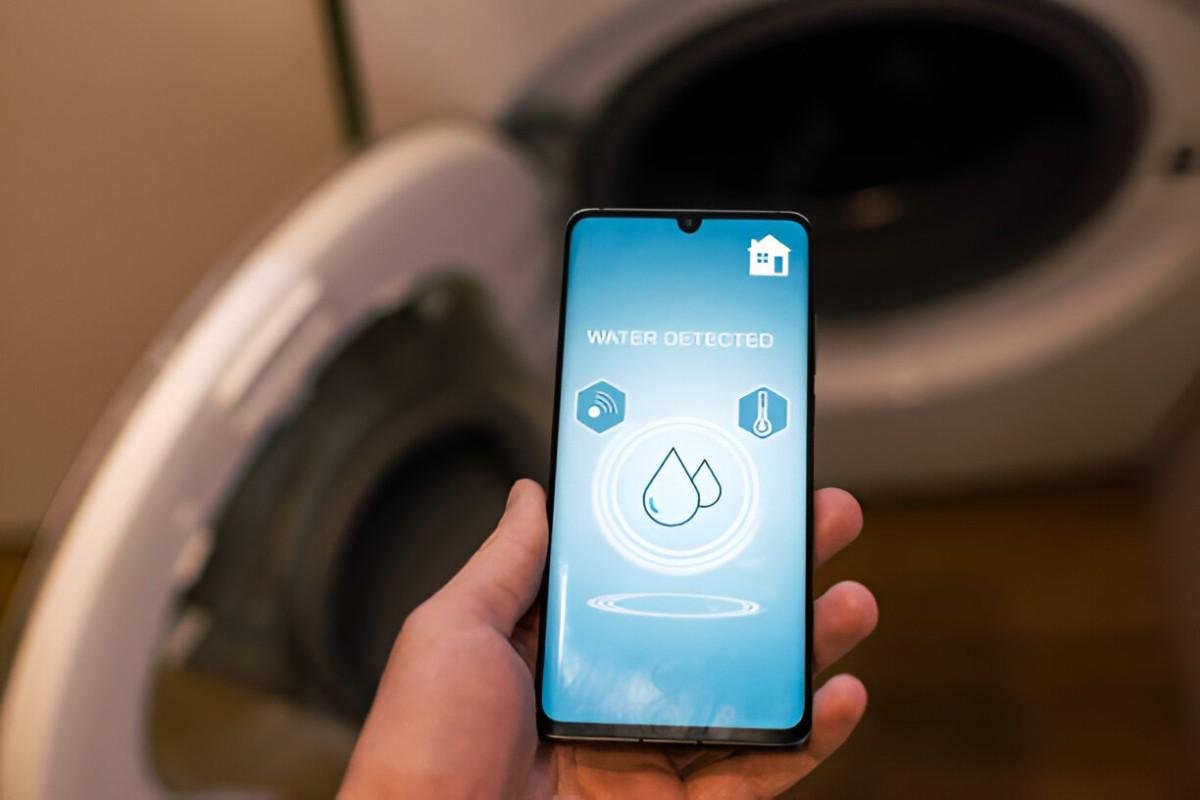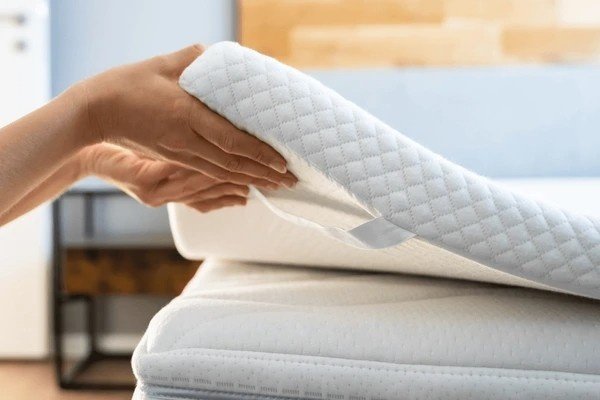Water damage can happen to anyone at any time. Whether it’s a burst pipe, a slow leak, or an appliance failure, the result can be costly repairs, insurance headaches, and a lot of stress. I know from experience how overwhelming it can be. That’s why I decided to write this comprehensive guide to help you find the best smart water leak detectors to protect your home from these unexpected disasters.
Smart water leak detectors are an essential part of modern home security and maintenance. They provide an early warning system, alerting you before the damage becomes significant. With a range of options on the market, choosing the right device for your needs can be tricky. In this guide, I’ll go over the top products, what features to look for, and how to compare the best options available today.
Table of Contents
What Are Smart Water Leak Detectors?
A smart water leak detector is a device designed to monitor your home for the presence of water where it shouldn’t be. These devices are equipped with sensors that detect water or moisture in places like basements, bathrooms, kitchens, or near appliances like dishwashers and washing machines. Once they detect a leak, they send alerts to your phone or a central smart home system, so you can address the issue before it turns into a major problem.
These devices are also called smart water sensors or leak sensors. They typically connect to your home’s Wi-Fi network or smart hub and use smartphone apps for notifications. Some models even integrate with other smart devices in your home, such as thermostats or lights.
Key Features to Look for in a Smart Water Leak Detector
When I started researching smart water leak detectors, there were a few important features I knew I needed to focus on. Here’s a list of the most critical factors you should consider:
1. Detection Sensitivity
The most important feature of any leak detector is how accurately it can sense moisture. You don’t want a device that gives false alerts, nor do you want one that misses leaks entirely. Look for sensors that can detect even small amounts of water in hard-to-reach places. The more sensitive the sensor, the sooner you’ll know about potential leaks.
2. Connectivity
A smart water leak detector needs to be connected to your home network for you to receive alerts. Some models connect via Wi-Fi, while others may use Zigbee, Z-Wave, or Bluetooth. Wi-Fi is generally the most convenient option, but Zigbee and Z-Wave may provide better range and reliability in large homes.
3. Battery Life
Since most detectors are powered by batteries, it’s essential to choose a model that offers a long battery life. Look for detectors that last at least one year on a single set of batteries. Some models even offer rechargeable batteries, which can save you money in the long run.
4. App and Notification System
The ability to receive instant alerts on your phone is what makes these devices “smart.” Check the app’s functionality before purchasing. Some apps allow you to customize alerts, set up multiple sensors, and even integrate the detector with other smart devices like thermostats or smart lighting systems.
5. Size and Mounting Options
Smart leak detectors come in various sizes, and the ideal one depends on where you plan to install it. Some models are compact enough to fit in tight spaces, while others are more substantial and might be better suited for larger areas. Ensure the device can be mounted where you need it, whether that’s on the floor, wall, or ceiling.
6. Waterproof Design
Although these sensors are designed to detect water, they should be able to withstand exposure to moisture. Choose a device that is rated for water resistance or waterproof, especially if you plan to place it in areas prone to humidity or splashes.
7. Integration with Smart Home Systems
If you already use smart home systems like Amazon Alexa, Google Assistant, or Apple HomeKit, you may want a water leak detector that integrates with those platforms. This can provide additional convenience and automation features, like voice alerts or integration with other smart devices.
Top Smart Water Leak Detectors of 2025
After reviewing dozens of options, I’ve narrowed it down to a few top choices. I compared each model based on key factors such as sensitivity, connectivity, battery life, and app features. Here’s a comparison table to help you choose the best smart water leak detector for your needs.
| Model | Connectivity | Battery Life | App | Integration | Price |
|---|---|---|---|---|---|
| Honeywell Lyric Wi-Fi Leak Detector | Wi-Fi | 3 years | Honeywell Home App | Alexa, Apple HomeKit | $$$$ |
| Flo by Moen Smart Water Leak Detector | Wi-Fi | 2 years | Flo by Moen App | Alexa, Google Assistant | $$$$$ |
| GROVE Smart Leak Detector | Wi-Fi | 1 year | GROVE App | Alexa, Google Assistant | $$$ |
| LeakSmart Leak Detector | Zigbee | 2 years | LeakSmart App | Alexa, Google Assistant, SmartThings | $$$$ |
| Samsung SmartThings Water Leak Sensor | Zigbee | 3 years | SmartThings App | Alexa, Google Assistant, SmartThings | $$$ |
| Honeywell Home Water Leak Detector | Wi-Fi | 3 years | Honeywell Home App | Alexa, Google Assistant | $$$$ |
1. Honeywell Lyric Wi-Fi Leak Detector
The Honeywell Lyric Wi-Fi Leak Detector stands out for its reliability and ease of use. It connects via Wi-Fi and provides accurate leak detection in any part of the home. The Honeywell Home App is intuitive, offering customizable alerts and simple setup. This model also integrates with Alexa and Apple HomeKit, making it a great choice for anyone already using those smart platforms.
2. Flo by Moen Smart Water Leak Detector
Flo by Moen is a high-end leak detector that offers more than just detection. It connects to a smart home system, so you can receive alerts directly to your phone. The Flo app also allows you to monitor water usage, which can be a useful feature for tracking leaks over time. Its installation requires a bit more effort than other models, as it’s designed to be part of your plumbing system.
3. GROVE Smart Leak Detector
The GROVE Smart Leak Detector is another excellent option if you’re looking for a device that connects to Wi-Fi. It has an impressive battery life, lasting up to a year on a single set of batteries. The GROVE app is user-friendly, and the device integrates well with Alexa and Google Assistant. It’s also a more affordable option compared to some of the other high-end models on the market.
4. LeakSmart Leak Detector
LeakSmart’s leak detector uses Zigbee for connectivity, making it a great choice for homes with Zigbee-compatible hubs. It offers a quick setup process and sends notifications to your phone. The LeakSmart app allows for customization of alert settings, so you’re always in the loop. This model also integrates with Alexa, Google Assistant, and SmartThings, making it a versatile choice for smart home enthusiasts.
5. Samsung SmartThings Water Leak Sensor
The Samsung SmartThings Water Leak Sensor is part of the larger SmartThings ecosystem, and it integrates seamlessly with Alexa, Google Assistant, and SmartThings hubs. While it’s not as feature-rich as some of the more expensive models, it’s reliable, has a long battery life, and is a great budget-friendly option for smart home users.
Why You Should Consider Smart Leak Detectors for Your Home
I believe every homeowner can benefit from installing a smart water leak detector. Here’s why:
- Prevent Expensive Water Damage: Water damage repairs can cost thousands of dollars. By detecting leaks early, you can avoid major structural damage to your home.
- Peace of Mind: Knowing that your home is being monitored 24/7 gives you peace of mind, especially when you’re away on vacation or at work.
- Simplicity and Convenience: Modern smart water leak detectors are easy to set up and integrate with other smart home devices. Many can even be controlled from your phone, giving you flexibility and control no matter where you are.
- Energy Savings: Some smart leak detectors also offer insights into your water usage, which can help you conserve water and reduce utility costs over time.
How to Install a Smart Water Leak Detector
Installing a smart water leak detector is usually straightforward, but there are a few steps I always follow to ensure I do it right:
- Choose the Right Location: Place the device near water-prone areas like bathrooms, kitchens, or basements. Make sure the sensor’s probes touch the ground or any surface where water could pool.
- Connect to Wi-Fi: Most detectors use your home’s Wi-Fi network for communication. Follow the manufacturer’s instructions to connect your detector to the network and download the corresponding app.
- Test the System: Once everything is set up, test the system by simulating a leak. You can pour a small amount of water near the sensor to ensure that it sends an alert to your phone.
- Maintenance: Periodically check the device for any issues. Replace batteries as needed and ensure the sensors remain clean and undamaged.
Conclusion
I hope this guide helps you find the perfect smart water leak detector for your home. Whether you’re looking for the most advanced model with multiple features or a simple, budget-friendly option, there’s a device that fits your needs. By choosing the right leak detector, you can safeguard your home from the costly effects of water damage and have peace of mind knowing that you’re always informed when trouble arises.





